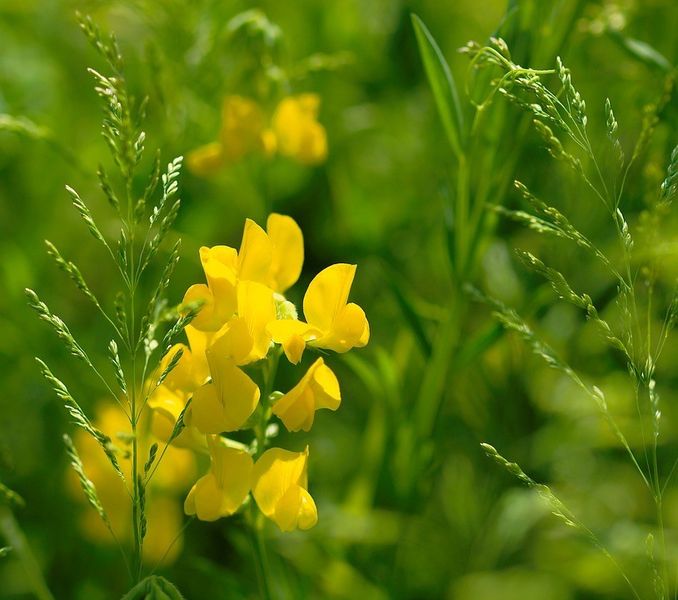Nursing both the Covid 19 and Biodiversity Crisis together
Covid-19 - What is important, Health or Wealth?
Life has as we know it entered unprecedented times with the emergence of the Covid-19 virus. Worldwide, organisational operations and individual movements have been restricted, and in some countries these rules are enforced by the police. Governments have taken unprecedented measures to confine movement. The previous unthinkable measures have changed lives drastically but most are complying with the new rules, acknowledging the greater good is to minimise impact and retain health. Financial valuations of the markets have drastically declined due to volatility and disruption (DeLoach, 2020). But we must ask ourselves, what is most important, our health or our wealth?
Health is wealth? The parallels with Covid 19 and Biodiversity
How do we value wealth? What is emerging globally, is that health is a form of wealth. Yet, the Covid-19 virus is not the only crisis humans face, the catastrophic decline in the planet's climate and unparalleled levels of biodiversity loss and species extinction is another global challenge. Humankind has found empathy in the current crisis; can this continue towards nature? The realisation that this virus has the potential to kill many humans has parallels with the decline of nature and ecosystems and the dependence on such from humankind.
The understanding that all food, medicine and everything in human society depends on biodiversity is clear (Hassan et al., 2020b) and yet the destruction of biodiversity and ecosystems is caused by humans (Hassan et al, 2020a). Has the natural world sent us a warning signal? The World Economic Forum documents biodiversity loss as one of the top five global risks (World Economic Forum, 2020). As we remain restricted, human behaviour can no longer inflict as much damage to the planet, evidence suggests the shutdown of organisations has led to a sharp decrease in air pollution (Carrington, 2020). Emission levels in China alone are found to be lower than the same period last year due to the pandemic ‘shut down’ (Watts and Kommneda, 2020). Nature does not negotiate, perhaps a positive outcome from this current crisis is the ability to work remotely and inflict less stress on the environment, therefore providing an opportunity to nurse both patients and the planet back to health. If health is wealth, we must reverse biodiversity and ecosystem loss.
Nursing our Planet
Presently, the NHS is the backbone of our recovery to health in the UK. Nursing is underpinned by Nightingales environmental theory which focuses on the patient’s environment for care and recovery (Gonzalo, 2019). This concept must be adopted to nurse the planet back to health by its very abusers, humans. The ecosystems we use as a ‘free good’ now must be nursed. Parallels between both crises are evident and the ability to nurse both unwell humans and ecosystems is fundamentally important to maintain human sustainability. The Anthropocene era must now harmonise with nature, immediately. Our planet has ‘symptoms’ that need to be treated – pollution, plastics, deforestation, habitat destruction and extinction. In unity, we must now nurse our planet to health.
The Way Forward
Unintentionally, we are relieving the planet of ecosystem pressure due to the current global restrictions. Solutions to both these crises must include the realisation that lifestyle changes can alleviate stress on human health and the intrinsic value nature provides. We must not revert to unnecessary destruction of the planet. A lifeline has been thrown for humans to recover from this pandemic and live in harmony with nature. Furthermore, everyone appreciates now more than ever that the intrinsic value from medicine and food, which ecosystems and biodiversity provide, is invaluable for recovery from this pandemic. Humankind has shown when needed that capitalist objectives can be pushed aside and that we have the empathy to save the human species. Hopefully, after Covid 19, the same empathy can continue towards biodiversity and ecosystems, our planet's lifeblood, which humans cannot survive without.
Blog was uploaded in April 2020.
Further reading and sources:
Carrington, D. (2020) “Coronavirus UK lockdown causes big drop in air pollution https://www.theguardian.com/environment/2020/mar/27/coronavirus-uk-lockdown-big-drop-air-pollution
DeLoach, J. (2020) “How is Covid-19 affecting your financial statements?” https://www.forbes.com/sites/jimdeloach/2020/03/23/how-is-covid-19-affecting-your-financial-statements/
Gonzalo, A. (2019) “Florence Nightingale: Environmental Theory”. https://nurseslabs.com/florence-nightingales-environmental-theory/
Hassan, A., Nandy, M. and Roberts, L. (2020a) Does loss of Biodiversity by businesses cause Covid 19? https://www.eauc.org.uk/does_loss_of_biodiversity_by_businesses_cause_c
Hassan, A., Roberts, L. and Atkins, J. (2020b) “Exploring factors relating to extinction disclosures: what motivates companies to report on biodiversity and species protection?”. Business Strategy and the Environment Journal. Vol 29(3), pp.1419-1436.
Watts, J. and Kommenda, N. (2020) Coronavirus pandemic leading to huge drop in air pollution. https://www.theguardian.com/environment/2020/mar/23/coronavirus-pandemic-leading-to-huge-drop-in-air-pollution
World Economic Forum (2020) Top risks facing the world in 2020. https://www.weforum.org/agenda/2020/01/top-global-risks-report-climate-change-cyberattacks-economic-political/











